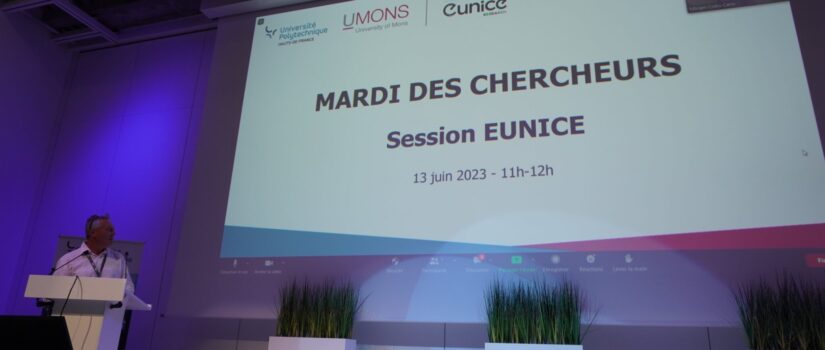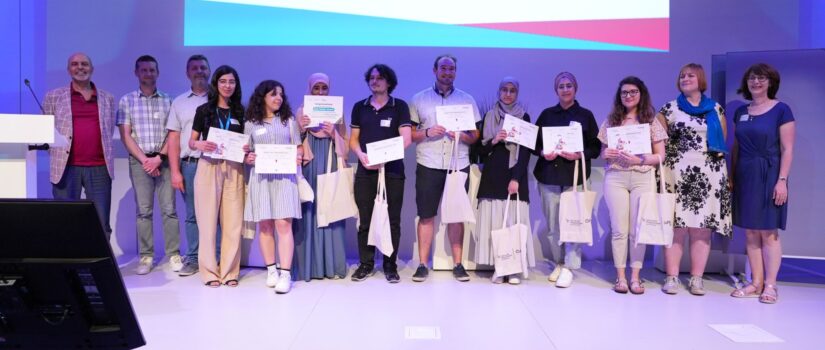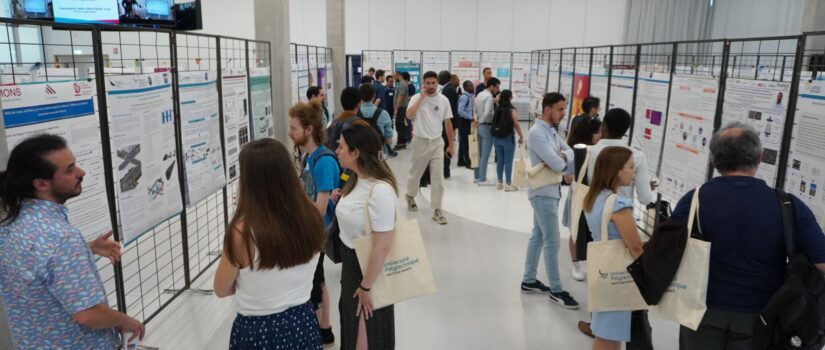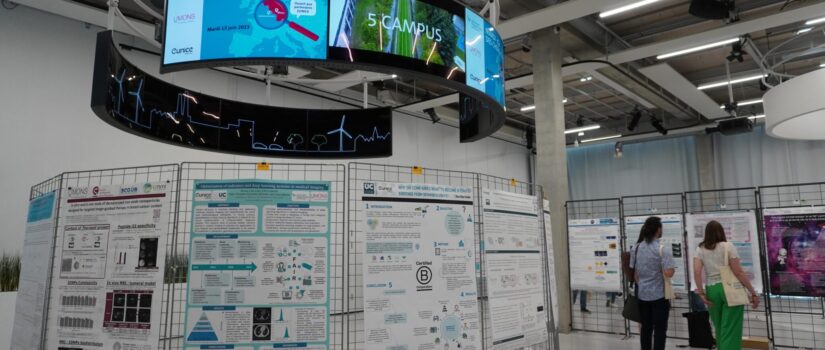Daniel García López, student in Functional Plasmidomics at the University of Cantabria (Spain), participated in the “Mardi des Chercheurs” presenting his work on mobile genetic elements and bacterial behaviour
On Tuesday 13th June, the Université Polytechnique Hauts-de-France (UPHF) held the 2023 edition of the Mardi des Chercheurs (Tuesday for Researchers) scientific event. This event, organised in turn by UPHF and the University of Mons (Belgium), is a yearly opportunity for PhD students to meet and present their research through scientific posters and a show combining art and research, entitled Show your PhD. The scientific event attracted more than 150 visitors and rewarded a dozen doctoral students.
EUNICE PhD students were invited to participate
Just as last year’s event at UMONS, PhD students from the entire alliance were invited to take part in the event and submit their posters. Visitors on site attended the one-hour Zoom session chaired by Pr. Dominique Deneux (EUNICE mediation officer at UPHF), during which five EUNICE participants could present their works. Multiple fields of study were presented, such as medical imaging, company management, social equity, biology… Visitors who could not attend the online session were still able to discover the posters, displayed in the venue throughout the day.
The five posters presented during the EUNICE session were:
- Optimization of radiomics and deep learning systems in medical imaging – COBO CANO Miriam, University of Cantabria
- Why do companies want to become B corps? Evidence from Spanish B corps – DIEZ BUSTO Elsa, University of Cantabria
- Taming plasmids to negate in synthetic genetic circuits – GARCIA-LOPEZ Daniel, University of Cantabria
- Nom Essays on digitalization among small and medium-sized firms: Complementary and contingent approaches – HAUTALA-KANKAANPAA Tuire, University of Vaasa
- Ensuring social equity by service integration design – PERIKANGAS Sofi, University of Vaasa
11 posters were rewarded
Visitors and participants were invited to vote for their favourite posters in each category. At the end of the event, eleven participants received an award for their poster.
Daniel García López, PhD student from the Functional Plasmidomics research group at the Institute of Biomedicine and Biotechnology of Cantabria (University of Cantabria – Spanish National Research Council), received the Reunice award for his poster on Taming plasmids to negate in synthetic genetic circuits, about mobile genetic elements and bacterial behaviour. “The clear presentation of his research topic and methods, as well as the conversation with the public enabled him to distinguish himself,” said the organisers. García’s research is still ongoing at this moment, and his work cannot be published yet.
As well as providing an opportunity for those involved in research to present their work, Mardi des Chercheurs, the first Reunice scientific dissemination event at UPHF, aimed at promoting research and creating ties between researchers of the alliance.
About EUNICE and Reunice
EUNICE, the European University for Customised Education, is designed to solve social and economic challenges, both globally and locally. In 2020, EUNICE was selected during the second call for pilot projects of European Universities of the European Commission. The alliance is nurtured by ten universities’ intellectual and infrastructure input –Poznań University of Technology (Poland), Brandenburg University of Technology (Germany), University of Cantabria (Spain), University of Mons (Belgium), University of Catania (Italy), Université Polytechnique Hauts-de-France (France), University of Vaasa (Finland), Polytechnic Institute of Viseu (Portugal), University of Peloponnese (Greece) and University of Karlstad (Sweden)–.
This alliance, born from the European Universities initiative and funded by the European Commission, is building a solid network of interactions between educational institutions and other agents to work on social and economic challenges.
EUNICE Research (Reunice project) was born in October 2021, funded by the EU’s H2020 Research and Innovation Programme, to align research and innovation agendas within the alliance. At the core of it lie the following objectives: to enhance human capital by implementing best practices, to share research infrastructures, to foster inclusivity and equality, to promote open science and cooperation between universities and other non-academic sectors.
For more information on Reunice, visit this page.









